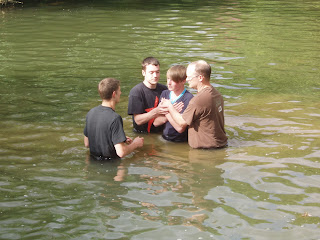I will sacrifice a freewill offering to you;
I will praise your name, LORD, for it is good.
Psalm 54:6 (NIV)
If you have been living in community for a while you find yourself slotting into the structure: meals, house-family meals (when we share and discuss community matters), celebration of birthdays (when we value the person whose birthday it is and bring them directional words) and gatherings (for worship and mutual inspiration). We need structure in the same way as our bodies need a skeleton! Indeed, to be part of the community, we have to follow this structure. We sign up for it as a voluntary act but, once in, some, at least, of the structure is mandatory.
Fair dues, no moans, this is what we signed up for.
This structure is important but it does not make community.
Within the mandatory there must be the voluntary giving of ourselves and that’s about the choices we make; structure is an aid but it does not ensure community – far from it. The most valuable things that build community (as opposed to a hostel or paid-for living quarters) come from within, our free choices. If structure is the skeleton, our free choices are the blood, the heart, the pulse, the throbbing, pulsating life of the community.
It’s those extra three minutes we spend listening to someone when bed is calling, it’s the text we send during the working day when we know they need encouragement, it’s the time spent with someone when there is no seeming time - and very often it is the small things that weigh; it’s what we choose to do with our (treasured!) unstructured time that often counts the most.
The Jews of Old Testament times had plenty of structure in their lives: feast days and festivals, sacrificial offerings, Sabbath keeping, the paying of tithes and so on. The Feast of Booths when they all dwelt in home-made tents (reminiscent of their 40 years sojourn in the wilderness) for a week to celebrate the harvest sounds like pure holiday time to me - family times, no work and a lot of eating! The nation would not have survived without this structure.
Ah ... but I read with interest in the book of Exodus of free will offerings given during the construction of the Tabernacle in the wilderness. ‘And the people continued to bring free will offering morning after morning’ (Exodus 35:29-36:5). Above and beyond all that was required, the people spontaneously gave. It was the free will offering which brought splendour and beauty to that extraordinary tent in the wilderness.
During the Feast of Weeks, free will offerings were accompanied by a mandatory instruction: “rejoice before the Lord your God!” (Deuteronomy 16:11) – hardly an irksome one!
It is ‘free will offerings’ that define a community; it is the deeds that are not required that bring ‘spendour and beauty’ to it - as in the days of the tent in the wilderness; structured requirements only take us so far; performing the ‘ought’ does not bring about flourishing community but generosity does – and not just of material sharing - generosity of heart and time.
The early church knew about the free-will offering. They shared meals and time and conversation together with ‘glad and generous hearts' (Acts 2:46).
Our defining moments as communities are when we give what is not required, love when it is not our duty, give when it is not owed. I think this is what Jesus called, ‘the extra mile’ (Matthew 5:41).
 It’s a quiet sunny Sunday afternoon in June – idyllic actually. The white waters, swollen with late rains, race under the old mill bridge; speckled sunlight breaks through upon the swirling waters.
It’s a quiet sunny Sunday afternoon in June – idyllic actually. The white waters, swollen with late rains, race under the old mill bridge; speckled sunlight breaks through upon the swirling waters. 




.JPG)
